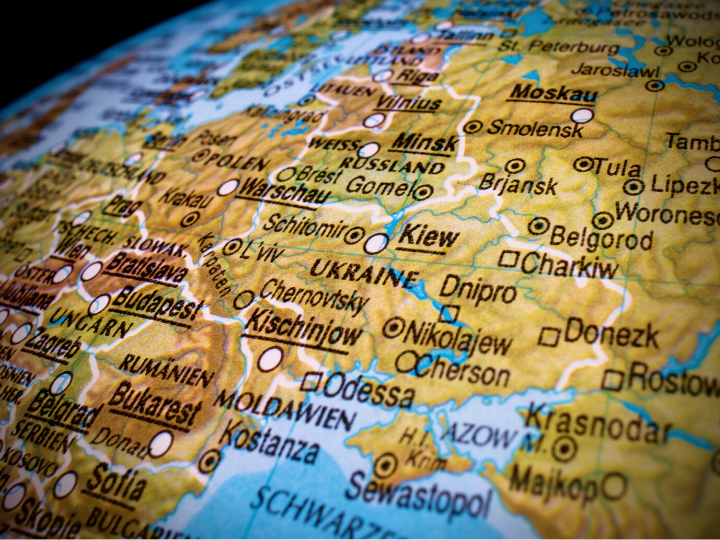by Kateryna Pishchikova*
As the West tries to recover from the collective shock of seeing evidence of mass atrocities in the recently liberated areas to the northwest of Kyiv, it has a moral imperative to subject its thinking about this war to renewed scrutiny.
The first reaction to the terrifying evidence from Bucha and other towns should be doubling down on supporting Ukraine. This is particularly important today, as Ukrainian President Volodymyr Zelensky warns that Russia has begun its new offensive in the Donbas region. To resist, Ukraine needs a qualitative and quantitative increase in military aid.
The latest news is putting prior analyses of what the Kremlin’s strategy in Ukraine may be to the test. The West feels weighed down by responsibility because wrong assumptions lead to wrong policy advice, and the stakes could not be higher. It is high time to take a step back and reassess the Kremlin’s objectives.
Before the war broke out on February 24, diversity of opinions notwithstanding, there seemed to have been a consensus in the expert community that a full-out war with Ukraine would put an end to Russia as we know it. And it did. The problem was that the West concluded at the start of the war that this could not have been but a miscalculation on the part of Russian President Vladimir Putin and his closest advisors.
Over the past weeks, the policy advice based on this thinking has been two-pronged. First, there is an understanding of a need to force Putin’s calculus by raising the costs of this war through economic sanctions. Second, there is an agreement on the need to support Ukraine in its resistance so that it is in a position to negotiate a compromise with Russia, without renouncing its sovereignty.
These measures remain crucial. However, the thinking behind the West’s initial analysis needs to be revisited.
The idea that the Kremlin miscalculated when starting this war assumes that Putin is engaged in tactical maneuvering, not implementing a coherent strategy. But more efforts are needed to understand his broader strategic calculus.
What if destroying Russia as we knew it is Putin’s new strategic objective? What if his real goal is the consolidation through war of a durable totalitarian regime? How would this change his objectives in Ukraine and what should the West do about it?
First, it would imply that he is not interested in ending this war quickly. It is true that militarily this has not been a brilliant campaign. However, the Russian military is not on the verge of collapse. There is ample margin for dragging the war out, destroying Ukrainian civilian and military infrastructure, and making additional territorial gains in the east and south.
Every day of the war is taking a massive toll on Ukraine, which may end up surrendering out of exhaustion. Resisting until the end, it risks becoming a wasteland. Either of these scenarios represents a tangible victory for Putin.
Second, a prolonged war is likely to help consolidate further the nascent totalitarian regime in Russia.
In a little less than two months, Russian society has undergone a massive transformation. The liberal middle class is being systematically squeezed out of the country. Massive domestic repression is ruthlessly rooting out any independent thought, plunging the country into a replay of the Stalinist era.
People who used to be politically apathetic are mobilized by the pervasive official narrative of existential threat to their homeland. Sanctions have further strengthened the rally-around-the-flag effect. In Putin’s eyes, the gains for regime consolidation at home increase the incentives for continuing this war.
Finally, there are implications for the collective West.
A misinformed approach will weaken the West’s position with regard to Russia over the long term. Unless they are part of a broader effort, sanctions will not work miracles by themselves. Deploying them on such a scale means engaging in economic warfare, yet most countries in the West shy away from admitting they are at war with Russia and from declaring that winning this war is their strategic objective.
This ambiguity could ultimately backfire as it will become increasingly difficult to justify the domestic costs of sanctions. It will also leave room for centrifugal forces and internal divisions that will immobilize the West and inhibit its collective action. Failing to address the broader issue of European security will leave the whole continent prone to instability and increasingly vulnerable to external threats.
The initial response to Russia has been driven by justifiable caution in dealing with a nuclear power. The risk of deployment of nuclear weapons is a real one, albeit arguably much smaller than Putin would like us to believe. It was also based on the assumption that Ukraine’s fierce resistance will be sufficient to change the Kremlin’s calculus. This assumption must be questioned.
The fact is that we may be witnessing the rise and consolidation of a totalitarian regime in the heart of Europe, a regime that will try to beat into submission as many peoples in its neighborhood as it can, all the while engaging in nuclear blackmail. Such a regime will only grow more stable over time, reaching a point where the West’s sanctions will have inflicted massive damage on Western economies without making any substantial difference in Russia or in Ukraine.
The collective West should start considering this scenario as a real possibility, not as an improbable nightmare. And it must do so now.
*associate research fellow at the Istituto per gli Studi di Politica Internazionale (ISPI) and an associate professor of political science and international relations at the eCampus University in Italy
**first published in: carnegieeurope.eu




 By: N. Peter Kramer
By: N. Peter Kramer
